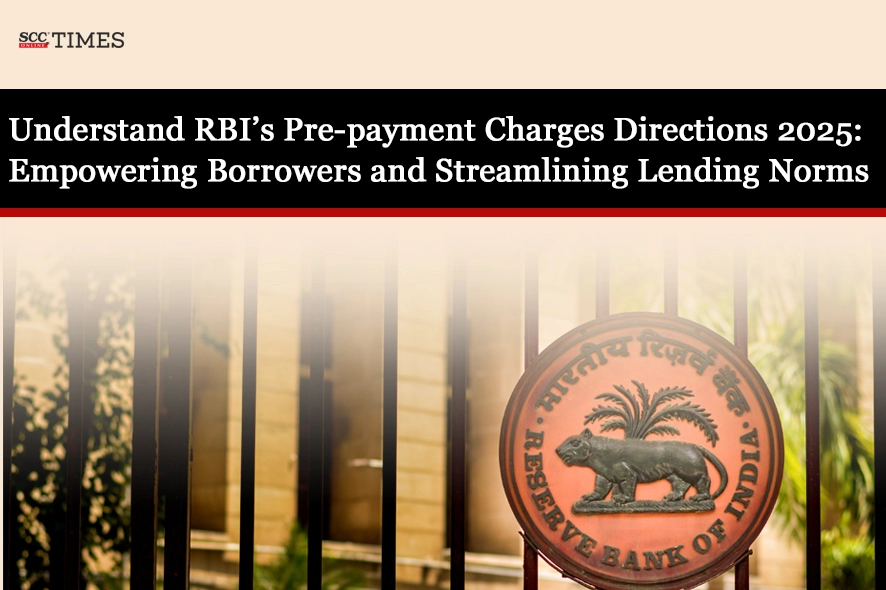On 2-7-2025, the Reserve Bank of India (‘RBI’), notified the RBI (Pre-payment charges on Loans) Directions, 2025 with the objective of eliminating unfair pre-payment charges and promoting transparent lending practices These rules are particularly aimed at protecting individual borrowers and Micro and Small Enterprises (MSEs) from restrictive clauses and arbitrary fees.
Background:
The RBI’s Pre-payment Charges on Loans Directions, 2025 is introduced to resolve issues in loan financing for MSEs, following the findings by RBI regarding inconsistent practices and restrictive clauses applied by Regulated Entities (‘REs’) that discouraged borrowers from switching to better lending options.
To address this, the RBI released a draft circular titled “Responsible Lending Conduct — Levy of Foreclosure Charges/ Pre-payment Penalties on Loans” in February 2025 for public consultation. The final Directions were formulated following an extensive review of stakeholder feedback and supervisory inputs. The RBI has issued these Directions by exercising powers conferred under Sections 21, 35A, and 56 of the Banking Regulation Act, 1949; Sections 45JA, 45L, and 45M of the Reserve Bank of India Act, 1934; and Section 30A of the National Housing Bank Act, 1987.
Key Points of RBI (Pre-payment charges on Loans) Directions, 2025:
- These Directions seek to safeguard borrowers from arbitrary fees and restrictive clauses that obstruct their ability to switch lenders for better interest rates or service conditions. They aim to promote fair competition, financial flexibility, and clarity in loan terms.
- RBI’s Pre-payment charges Directions will be applicable to all loans and advances that are sanctioned or renewed on or after 1-1-2026.
- These Directions cover the following entities:
- All commercial banks (excluding payments banks)
- Co-operative banks
- Non-Banking Financial Companies (NBFCs)
- All India Financial Institutions
- Under these Directions, REs cannot charge any pre-payment fees on floating rate loans given to individuals for non-business needs, even if the loan has co-borrowers.
- The REs will be barred from levying any charges/ fees retrospectively at the time of pre-payment of loans, which were waived off earlier by any other RE.
- For floating rate loans given to individuals and MSEs for business purposes, no pre-payment charges shall be levied by:
- Commercial banks (excluding Small Finance Banks, Regional Rural Banks, and Local Area Banks)
- Tier 4 Urban Co-operative Banks
- NBFCs—Upper Layer
- All India Financial Institutions
- Smaller institutions like Small Finance Banks, Regional Rural Banks, Tier 3 Urban Co-operative Banks, State and Central Co-operative Banks, and NBFCs in the Middle Layer also cannot charge pre-payment fees on business loans up to Rs. 50 lakh.
- These rules apply regardless of the source of pre-payment funds, and borrowers are not subject to any lock-in period before making a pre-payment.
- For loans not covered under these exemptions, the pre-payment charges will be levied in accordance with the regulated entity’s approved policy.
- To ensure transparency, all applicable charges must be clearly disclosed in the sanction letter, loan agreement, and, when needed, in the Key Facts Statement.


